 Neuropsychology PhD student Vanessa Correia and professor Dr. Christopher Abeare, who also serves as clinical supervisor at the Sport-Related Concussion Centre (SRCC) at the University of Windsor in Windsor, Ont., on Wednesday, Dec. 4, 2025. (DAVE GAUTHIER/ University of Windsor)
Neuropsychology PhD student Vanessa Correia and professor Dr. Christopher Abeare, who also serves as clinical supervisor at the Sport-Related Concussion Centre (SRCC) at the University of Windsor in Windsor, Ont., on Wednesday, Dec. 4, 2025. (DAVE GAUTHIER/ University of Windsor)
By Lindsay Charlton
We spend about a third of our lives asleep, and those hours are crucial for everything from mood to muscle repair.
Now, University of Windsor researchers are asking whether poor sleep could put athletes at greater risk of concussion—and affect how they recover.
— Published on Dec 16th, 2025
 Biochemistry undergraduate Nicole Vanier is in her third year of research placements in Dr. Simon Rondeau-Gagné's lab. (VICTORIA OLGA KIS/University of Windsor)
Biochemistry undergraduate Nicole Vanier is in her third year of research placements in Dr. Simon Rondeau-Gagné's lab. (VICTORIA OLGA KIS/University of Windsor)
By Sara Elliott
The journey to becoming a leader and a researcher began when biochemistry major Nicole Vanier was in high school.
Having learned about the Outstanding Scholars program from her older sister, Jeannette Vanier (BSc ’23), she began to consider research, unsure of what to expect but open to the opportunities the program offered.
— Published on Dec 15th, 2025
 Dr. Wesley Tourangeau, a professor in the University of Windsor's Department of Sociology and Criminology. (SUBMITTED BY WESLEY TOURANGEAU/ University of Windsor)
Dr. Wesley Tourangeau, a professor in the University of Windsor's Department of Sociology and Criminology. (SUBMITTED BY WESLEY TOURANGEAU/ University of Windsor)
By Lindsay Charlton
Picture yourself in the meat aisle, drawn to bacon citing “free-range” and “organic.”
Those claims suggest ethical farming, but how much do they really say about the welfare of the animals behind the food we buy?
— Published on Dec 11th, 2025
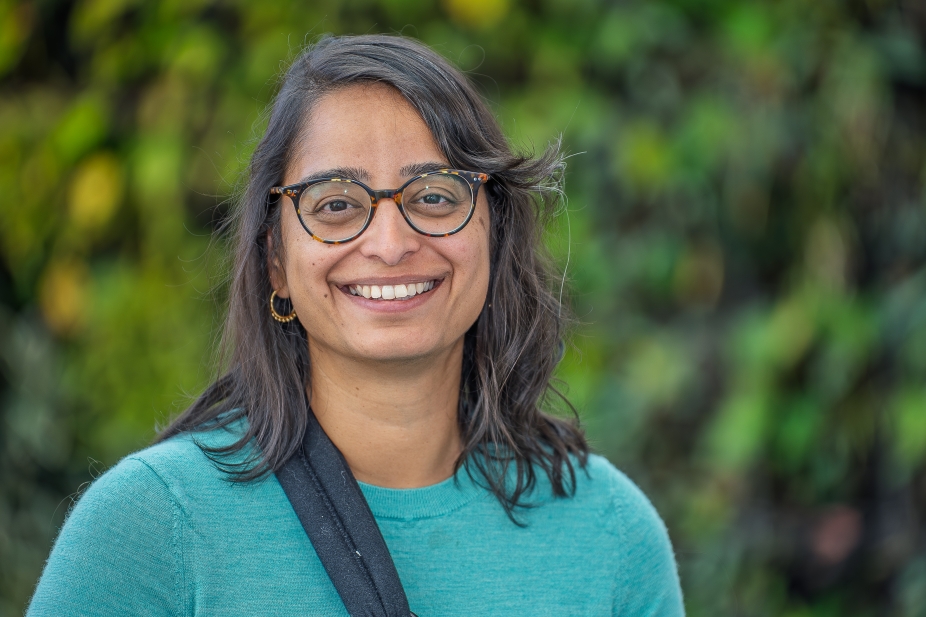 Dr. Swati Mehta joined the University of Windsor's Faculty of Human Kinetics in 2025 (FILE/University of Windsor)
Dr. Swati Mehta joined the University of Windsor's Faculty of Human Kinetics in 2025 (FILE/University of Windsor)
By Kate Hargreaves
Inhabiting the intersection between kinesiology, psychology and computer science, Dr. Swati Mehta’s research is the definition of interdisciplinarity.
A new faculty member in kinesiology as of 2025, Mehta takes a holistic approach to mental and physical health while exploring novel technological supports.
— Published on Dec 11th, 2025
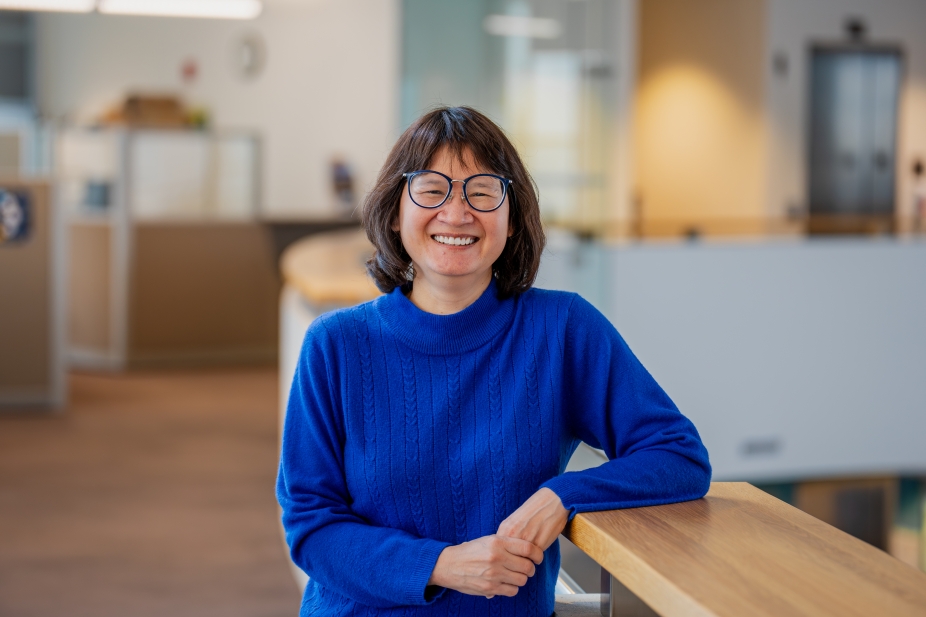 Dr. Jane Ku is co-editor of a new collection from University of Alberta Press (FILE/University of Windsor)
Dr. Jane Ku is co-editor of a new collection from University of Alberta Press (FILE/University of Windsor)
By Kate Hargreaves
A new book on South Asian Feminisms in Diaspora had its genesis over several years of conversations and community.
Co-editor and University of Windsor professor of Interdisciplinary and Critical Studies and Sociology Dr. Jane Ku explains its roots in a roundtable as part of the Canadian Sociological Association annual meeting.
Ku explains that the turnout was enthusiastic.
“It encouraged us to say, ‘okay, what do we do next?’”
— Published on Dec 9th, 2025
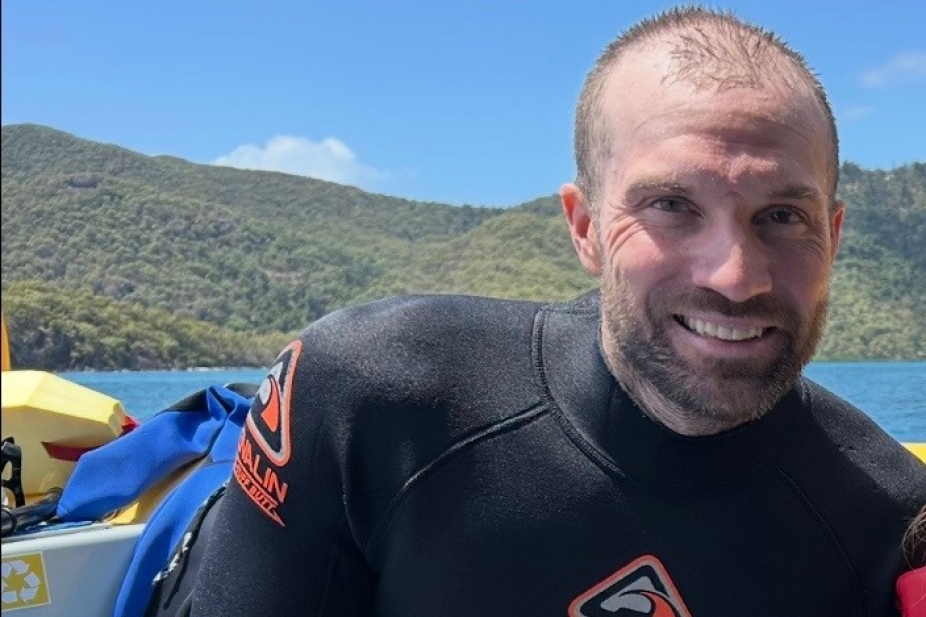 Dr. Anthony Bain went from studying freedivers to trying out their techniques (SUBMITTED BY ANTHONY BAIN/University of Windsor)
Dr. Anthony Bain went from studying freedivers to trying out their techniques (SUBMITTED BY ANTHONY BAIN/University of Windsor)
By Kate Hargreaves
Science communication can be difficult.
Rendering complex physiological processes in a way that lay audiences can understand is no easy task.
Neither is holding your breath for four minutes.
University of Windsor professor of Kinesiology Dr. Anthony Bain is, however, up to both challenges.
— Published on Dec 9th, 2025
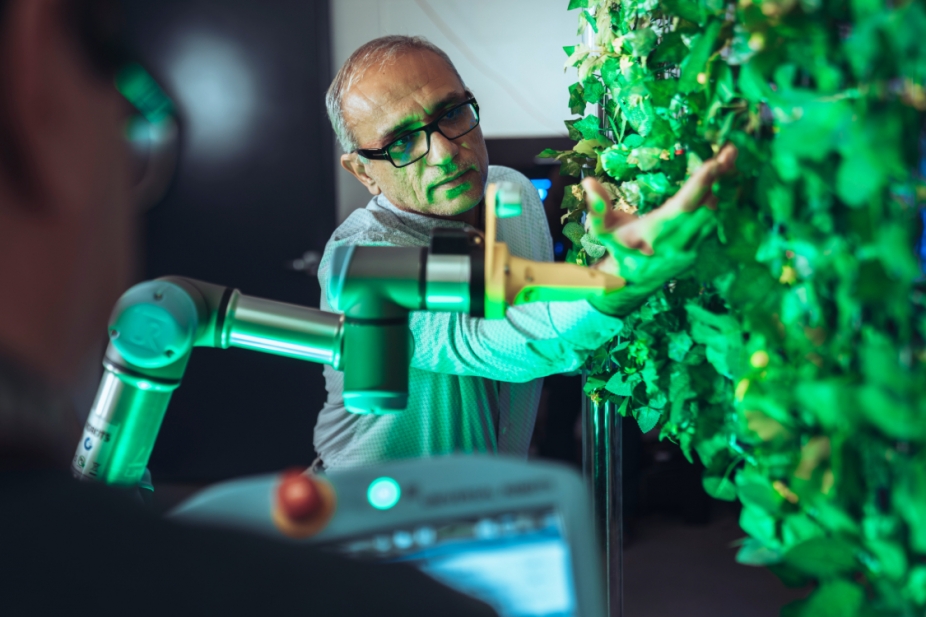 Electric and computer engineering assistant professor Dr. Shahpour Alirezaee in the mechatronics lab at the University of Windsor. (MIKE WILKINS/The University of Windsor)
Electric and computer engineering assistant professor Dr. Shahpour Alirezaee in the mechatronics lab at the University of Windsor. (MIKE WILKINS/The University of Windsor)
By Sara Elliott
The University of Windsor recorded the largest year-over-year growth in research funding among all Canadian universities in the annual Canada’s Innovation Leaders (CIL) report released Dec. 4.
In just one year, UWindsor’s research income rose by 37 per cent, from $32.5 million to $44.5 million in 2024.
— Published on Dec 9th, 2025
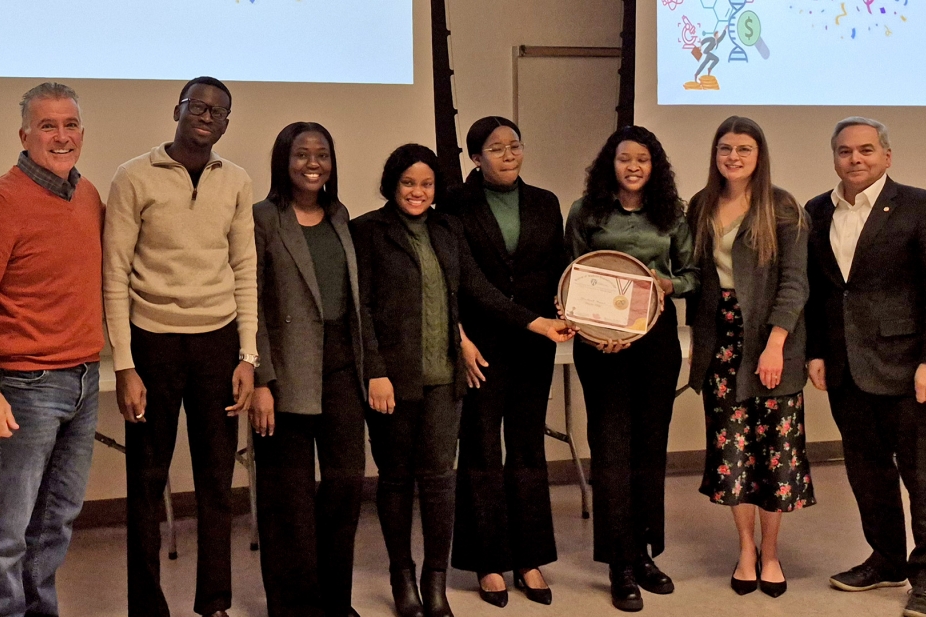 Pitch to Win participants and judges (from left) Tim Eansor, Godswisdom Ogbonna, Barbara Okoh, Oluwasola Awe, Ogechi Chinonso, Chinwem Onu, Sydney Thompson and Marcelo Sarkis. (SUBMITTED BY ZAREEN AMTUL / University of Windsor)
Pitch to Win participants and judges (from left) Tim Eansor, Godswisdom Ogbonna, Barbara Okoh, Oluwasola Awe, Ogechi Chinonso, Chinwem Onu, Sydney Thompson and Marcelo Sarkis. (SUBMITTED BY ZAREEN AMTUL / University of Windsor)
Nearly 250 students, mentors and industry leaders took part in the second annual BioTech Entrepreneurship Pitch to Win competition on campus earlier this month.
— Published on Dec 8th, 2025
 Sohila Sidhu participating as a committee director for the 2025 UWindsor Model United Nations (SUBMITTED BY SOHILA SIDHU/University of Windsor)
Sohila Sidhu participating as a committee director for the 2025 UWindsor Model United Nations (SUBMITTED BY SOHILA SIDHU/University of Windsor)
From training in the dojo to Model United Nations, Outstanding Scholar Sohila Sidhu is balancing a lot.
At the same time, she is also laser-focused on a career in medicine.
This drive is part of what motivated Sidhu to become part of UWindsor’s Outstanding Scholars program, which facilitates research opportunities for high-achieving undergraduate students.
— Published on Dec 9th, 2025
 Dr. Amy Fitzgerald, professor in the University of Windsor’s Department of Sociology and Criminology and the Great Lakes Institute for Environmental Research, has authored papers examining animal-inclusive protection orders. (MIKE WILKINS/ University of Windsor)
Dr. Amy Fitzgerald, professor in the University of Windsor’s Department of Sociology and Criminology and the Great Lakes Institute for Environmental Research, has authored papers examining animal-inclusive protection orders. (MIKE WILKINS/ University of Windsor)
By Lindsay Charlton
For many survivors of intimate partner violence, fear for their pets’ safety becomes another barrier to leaving — a concern backed by evidence that animal and partner abuse often co-occur.
A new study shows that protection orders including animals can offer better safeguards for both.
— Published on Dec 1st, 2025
 Neuropsychology PhD student Vanessa Correia and professor Dr. Christopher Abeare, who also serves as clinical supervisor at the Sport-Related Concussion Centre (SRCC) at the University of Windsor in Windsor, Ont., on Wednesday, Dec. 4, 2025. (DAVE GAUTHIER/ University of Windsor)
Neuropsychology PhD student Vanessa Correia and professor Dr. Christopher Abeare, who also serves as clinical supervisor at the Sport-Related Concussion Centre (SRCC) at the University of Windsor in Windsor, Ont., on Wednesday, Dec. 4, 2025. (DAVE GAUTHIER/ University of Windsor)









